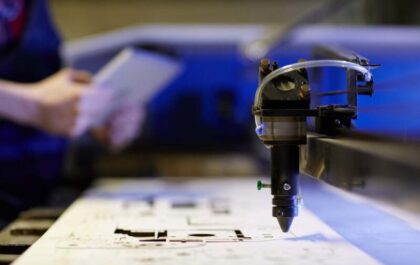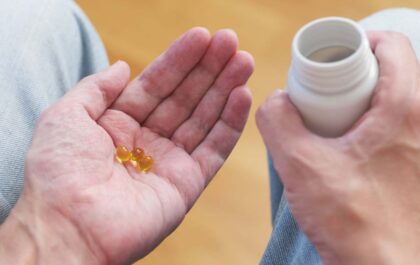Table of Contents
IntroductionHEALTH
So, if you adhere to a preventive dental health program, consider eating better and brushing your teeth daily using dental floss. “Eating a quality diet is essential if you want to prevent dental or medical problems. Fortunately, what is good for the mouth is also good for the whole body. Here are some great foods to eat regularly
Healthy Eating
A healthy diet protects the beauty of your smile for many years. But it has many other advantages. Banning sweets, a source of caries, from your diet is not the only objective; it is also about nourishing the body well so it can victoriously fight against infections, ensure the rapid healing of tissues and give you robust bone and teeth.
However, a poor diet jeopardizes all these objectives, argue specialists. “If specific nutrients are missing from your diet, the tissues in the mouth have a more challenging time-fighting infection.
Dairy products such as Milk, Cheese and Yoghurt
What for?: “Calcium and vitamin D play an important role in maintaining healthy teeth and bones,” says Dr Swan. (But that, you already know, right?) However, it is precisely dairy products that contain the most.
Cheese is good for teeth because its high pH neutralizes the acid. So if you have a dessert or something sweet and there is cheese on the table, take a piece of it at the very end to clean your teeth.
Studies have shown that dietary calcium is preferable to calcium in supplements and that, stuck between a northern climate and sunscreens, our epidermis has a hard time producing enough vitamin D from the sun.
Other excellent foods: Tofu, almonds, canned salmon, beans, broccoli and other dark green leafy vegetables, fortified orange juice and soy or rice drink.
Whole Grain Bread and Cereals for Good Dental Health
What for?: Are you pregnant, or would you like to be pregnant? You should then know that whole grain product enriched with folic acid are the key to your baby’s oral health. “Folic acid intakes are important during pregnancy to prevent the formation of a cleft lip (cleft lip and cleft palate) in the fetus,” says dentist Euan Swan.
Be sure to receive 0.4 mg of folic acid per day. It also guarantees good brain development and the fetus’s backbone.
Wheat germ, rich in vitamin E, also promotes the healing of tissues and lesions.
Other excellent foods rich in folate and folic acid: dark green vegetables (broccoli, spinach, peas, Brussels sprouts), corn, dehydrated vegetables, oranges and orange juice. Prenatal multi-vitamin supplements also include folic acid.
What for?: To recover Faster from Dental Surgery.
Amino acids accelerate the healing of lesions, says nutritionist Susan Fyshe. Likewise, a high-protein diet can help you recover faster from wisdom tooth extraction or dental implantation (or surgery, truth be told).
Many protein-rich foods also contain a lot of zinc, promoting healing. Other excellent foods: Seeds and nuts, eggs, tofu, and legumes.
Vitamin C: Citrus Fruits, Strawberries, Kiwis for Good Dental Health
Vitamin C also accelerates healing, adds nutritionist Susan Fyshe, which is very useful after dental surgery or during minor daily accidents (scratches, burns caused by drinks or scorching foods, bites of the lips or tongue, etc.).
A study in the Journal of the Canadian Dental Association also demonstrated that cranberries have favourable properties in treating caries and periodontitis. Other excellent foods: Broccoli and red peppers.
Egg yolks, squash and other dark orange fruits and vegetables
What for?: These foods are rich in vitamin A, which promotes healing and skin growth. It is an essential asset after dental surgery or in case of injuries in the mouth.
According to the Canadian Dental Association, raw fruits and vegetables, plain yoghurt, hard-boiled eggs, nuts, pumpkin or sunflower seeds, and rusks are snacks that do not damage tooth enamel. According to dentist Alastair Nicoll, the sugar in these foods is not readily metabolized into acid. Other excellent foods: Green peppers, collard greens and other dark green vegetables.
Tap Water
What for?: “Having dry mouth increases the risk of infection or mouth ulcers. So it’s important to drink plenty of water daily,” Fyshe recommends.
In addition, by freeing the mouth from food particles and bacteria that stay in it, water helps prevent bad breath.
Another excellent drink: Bottled water is free of fluoride and is much less environmentally friendly than tap water.
Sugar-Free Gum for Good Dental Health
What for?: Chewing results in the production of saliva, which is good for your teeth. “It keeps acid away from teeth, which don’t degrade.
“It also contains phosphate and calcium ions, the primary constituents of the enamel structure. They rebuild the enamel and help remineralize the tooth after the onslaught of acidic foods. Saliva also contains a full range of antimicrobial and antifungal agents that help prevent infections,” he adds.
Related posts
Featured Posts
Exploring Advanced Techniques in the Laser Engraving Machine: 3D, Texturing, and Multi-Layered Designs
Many industries have spoken for the laser engraving machine because of its results and versatility. But recently, many advancements have…
Benefits of Vitamin D
Introduction One cannot live without the benefits of vitamin D because its virtues are essential for good health. But do…


